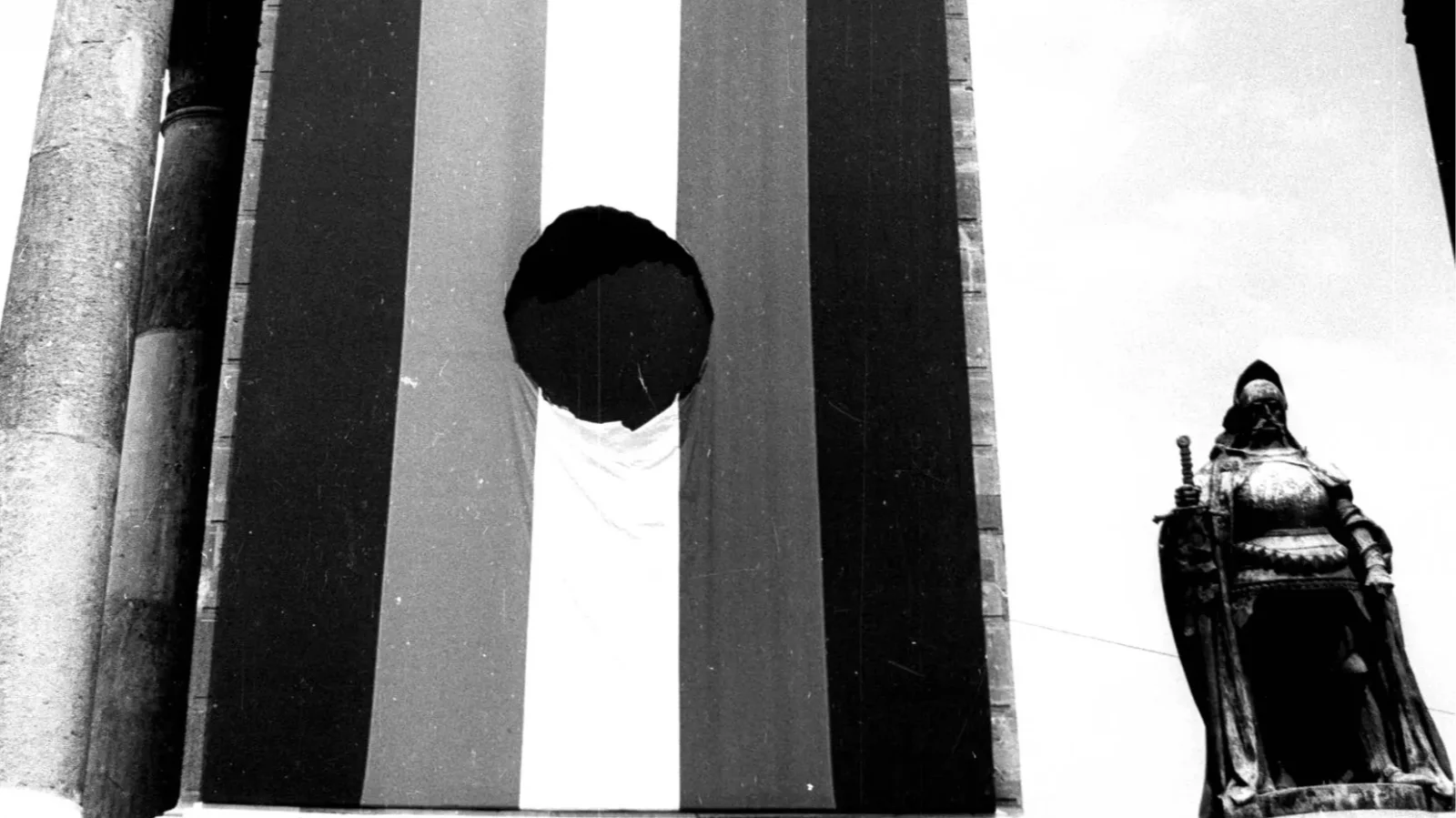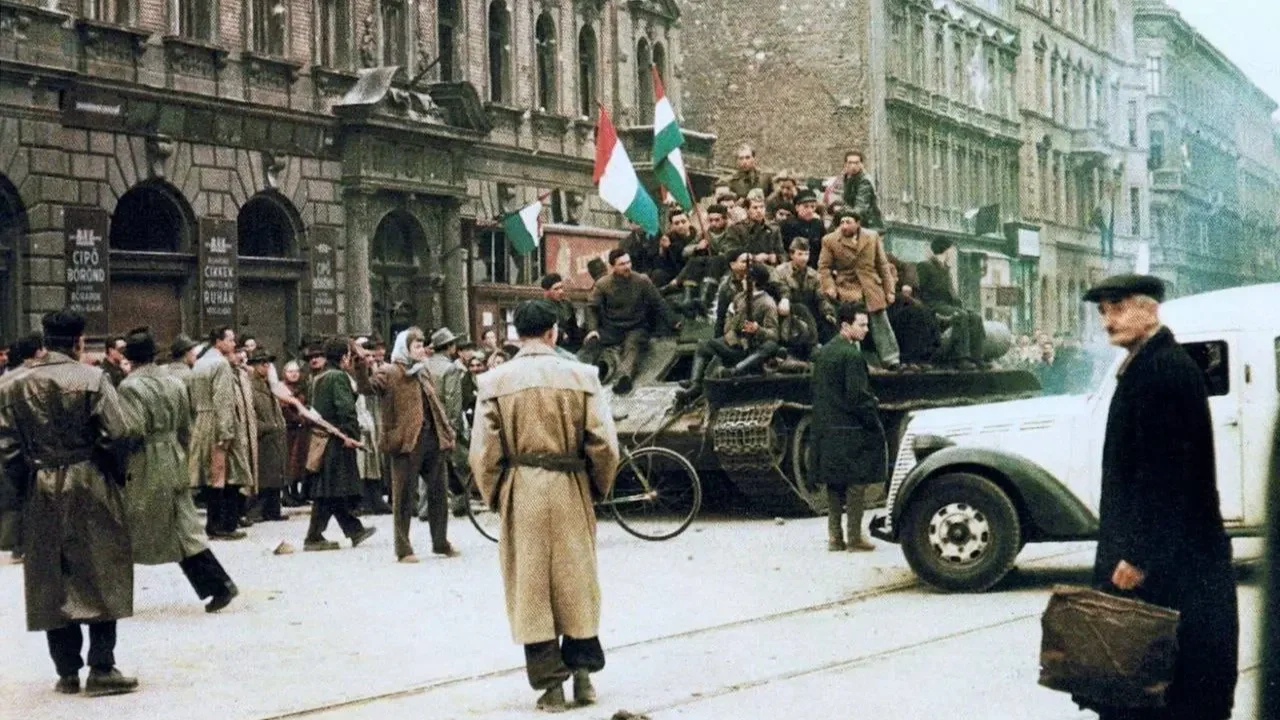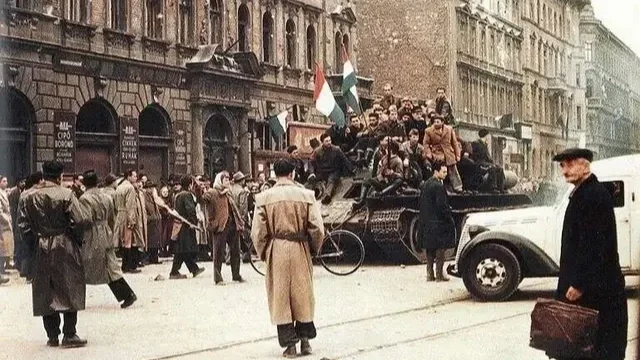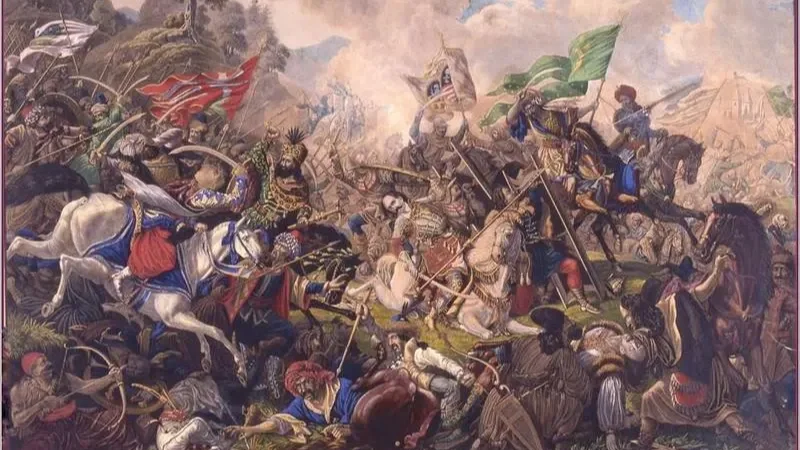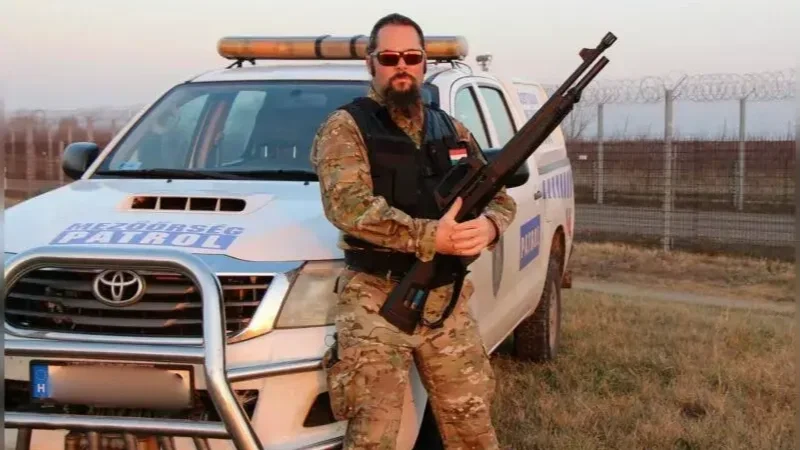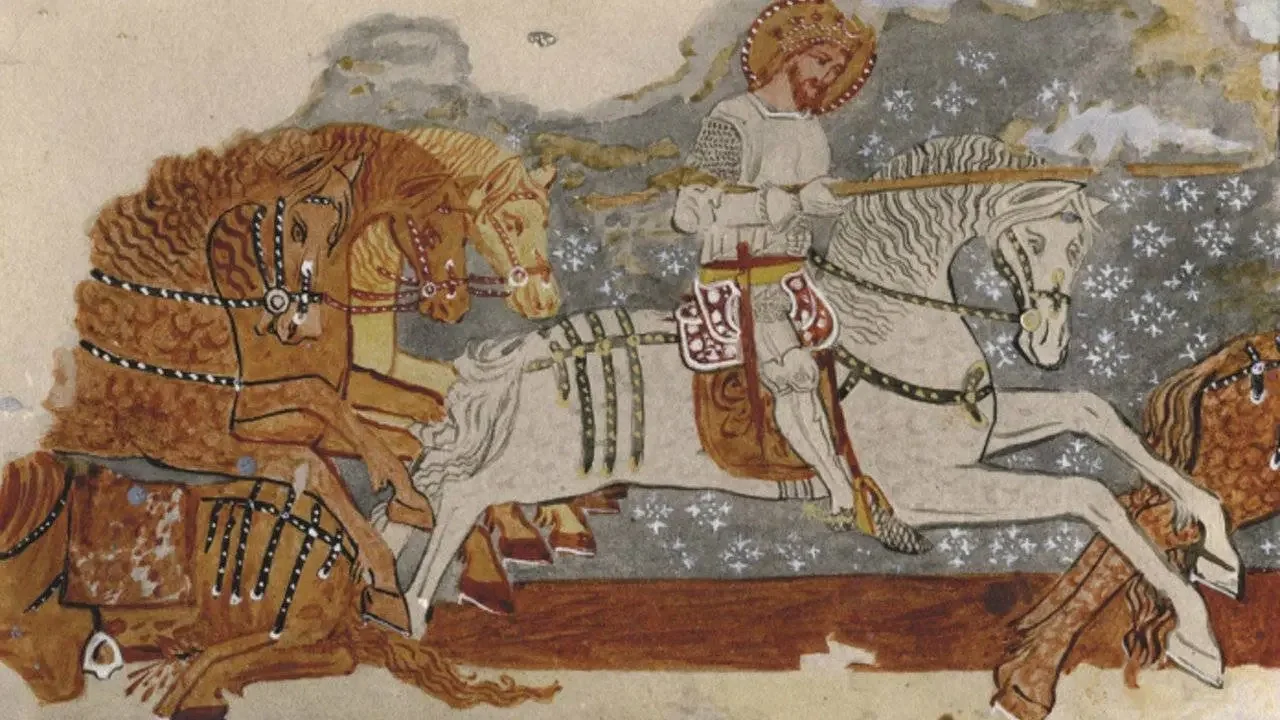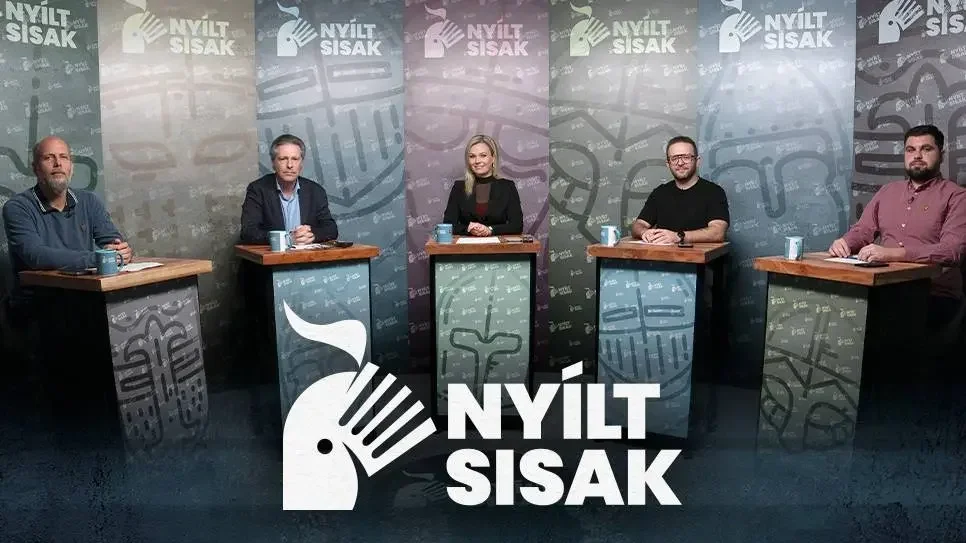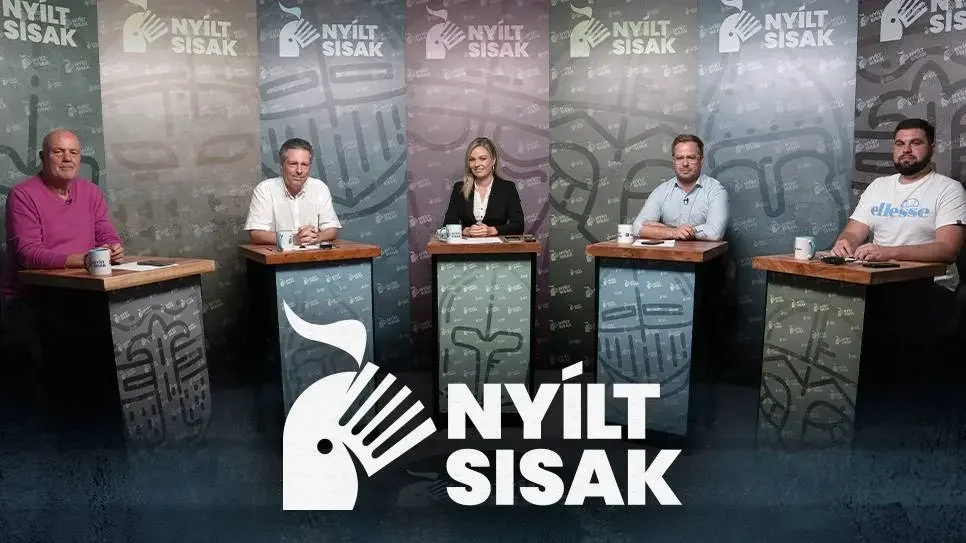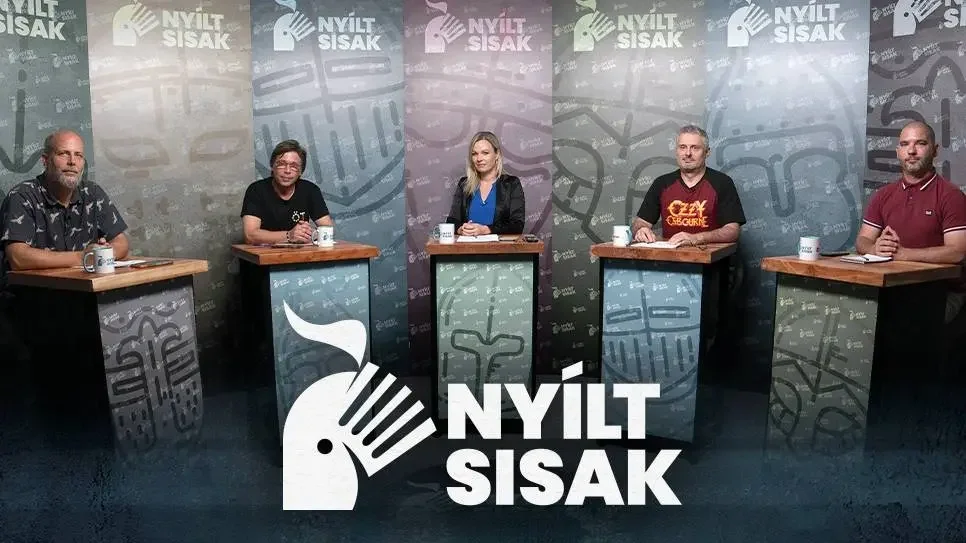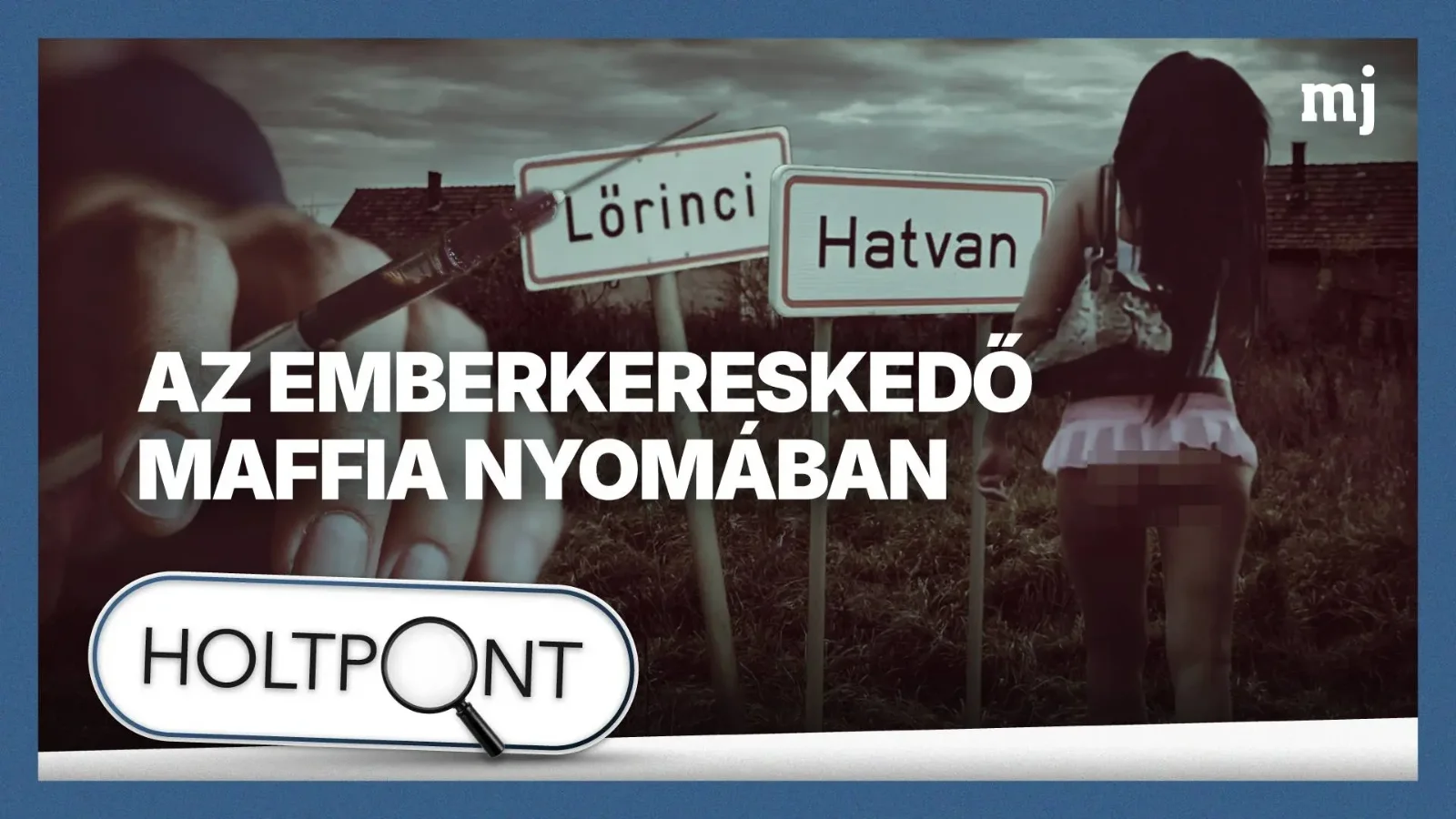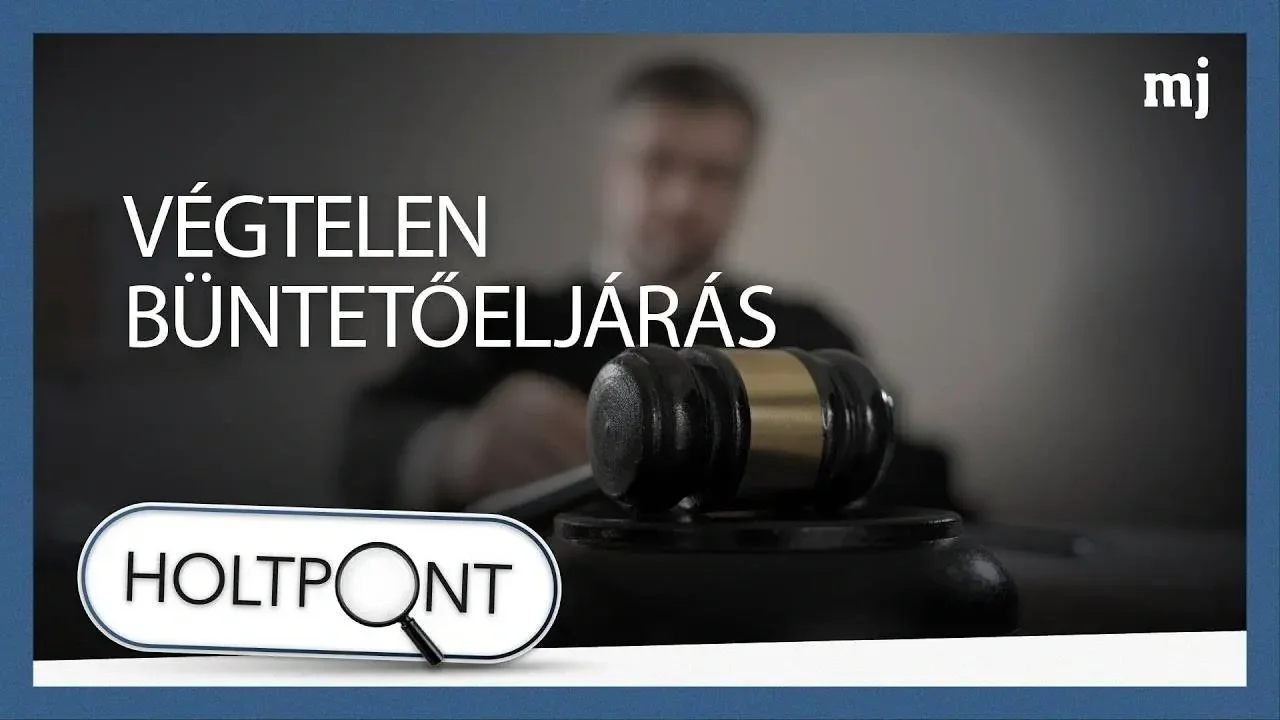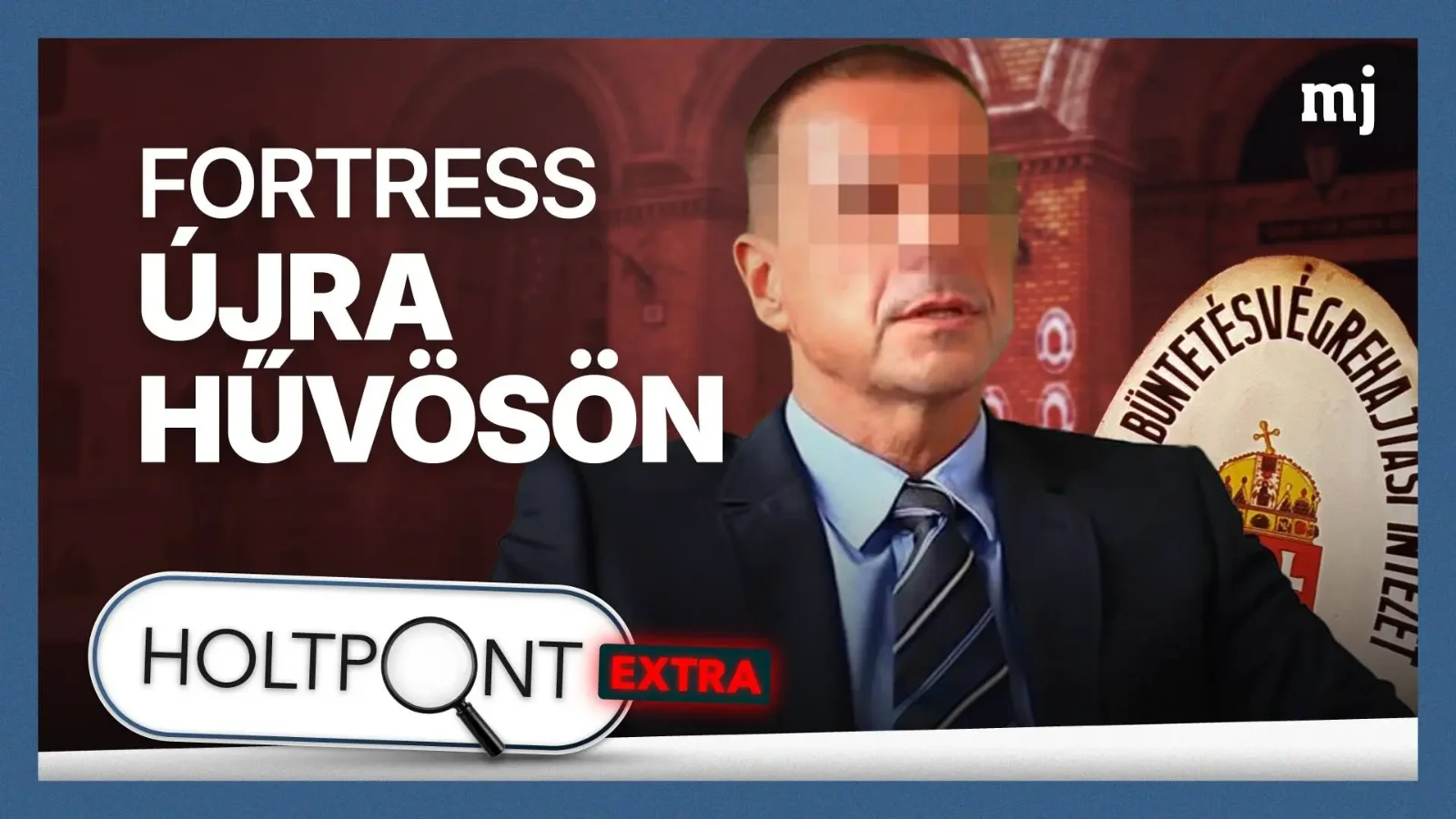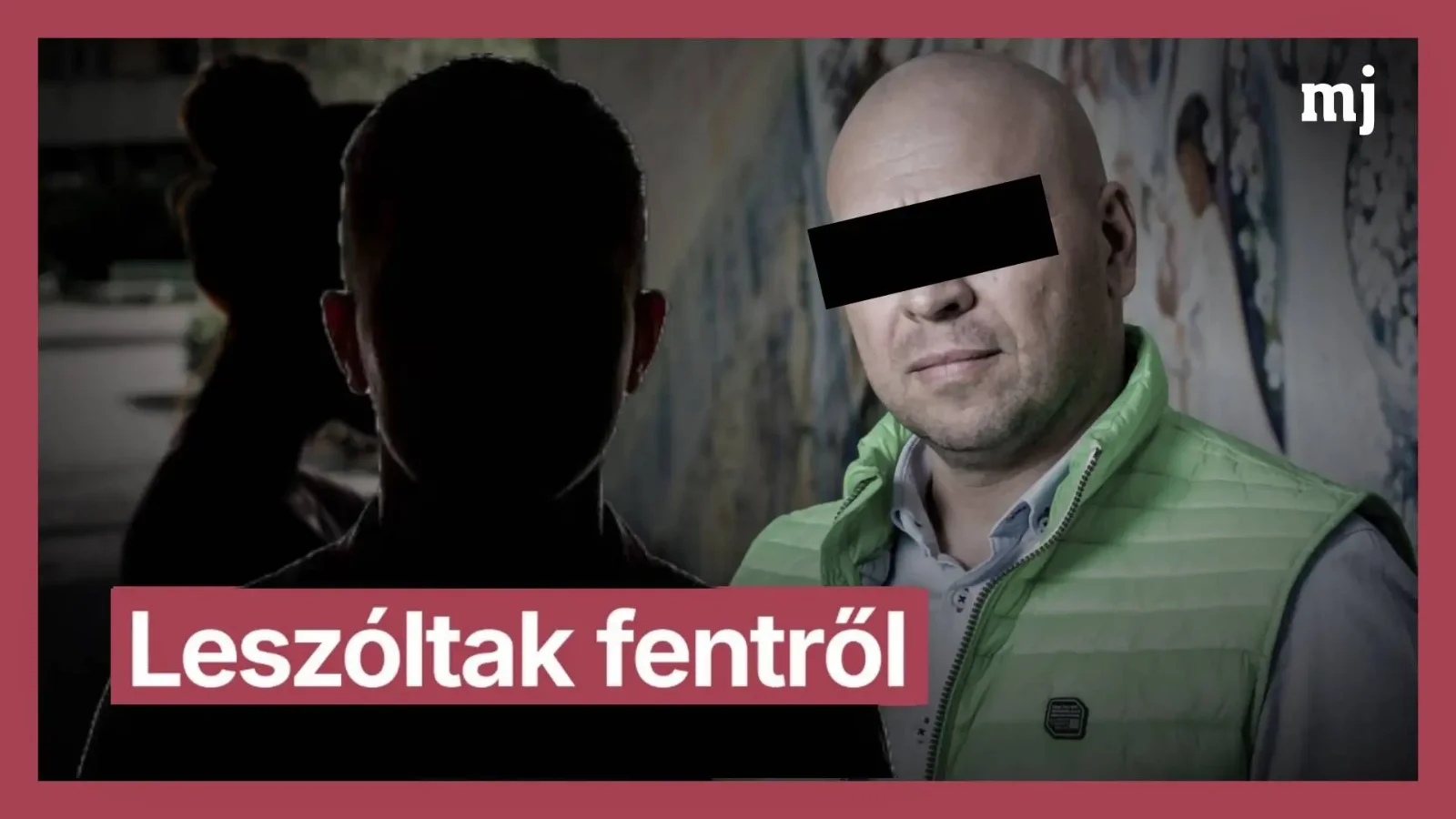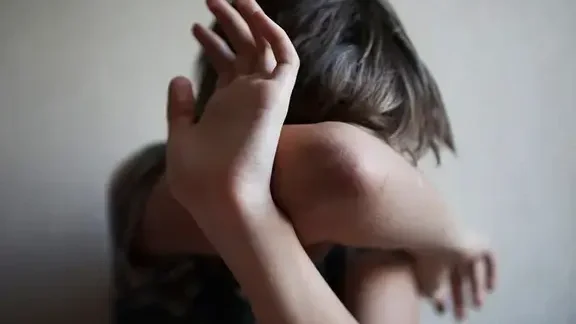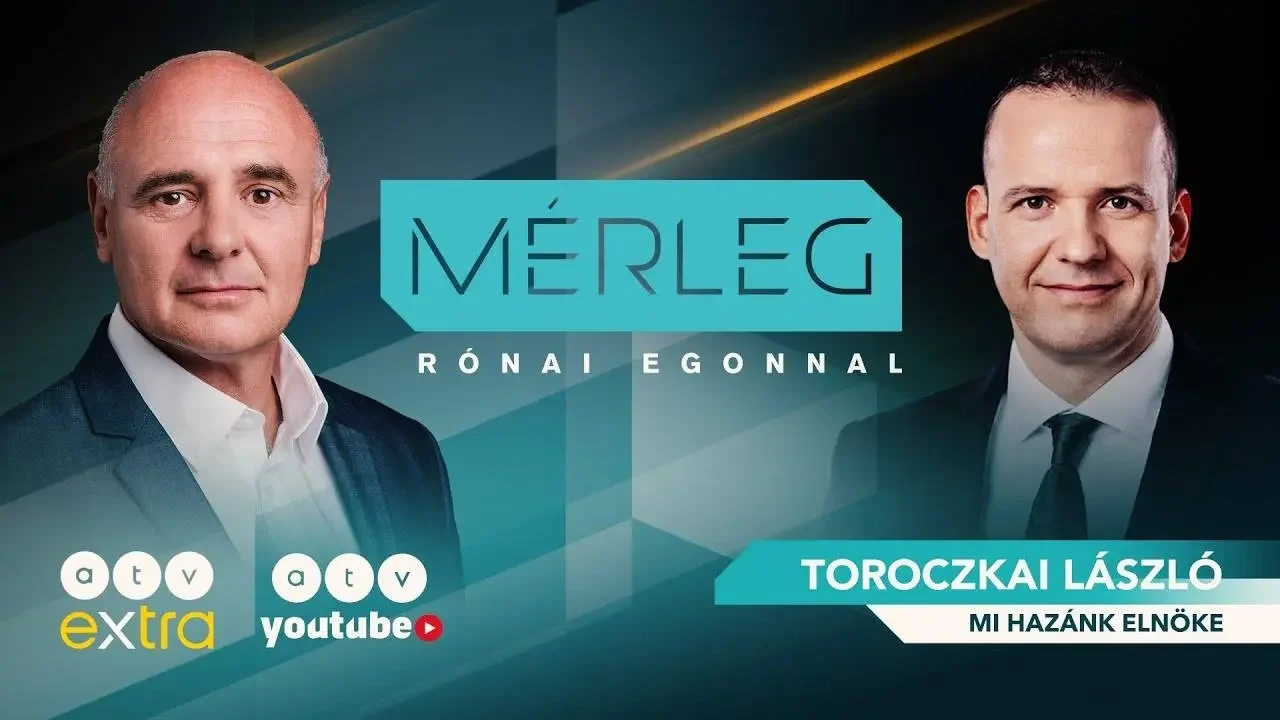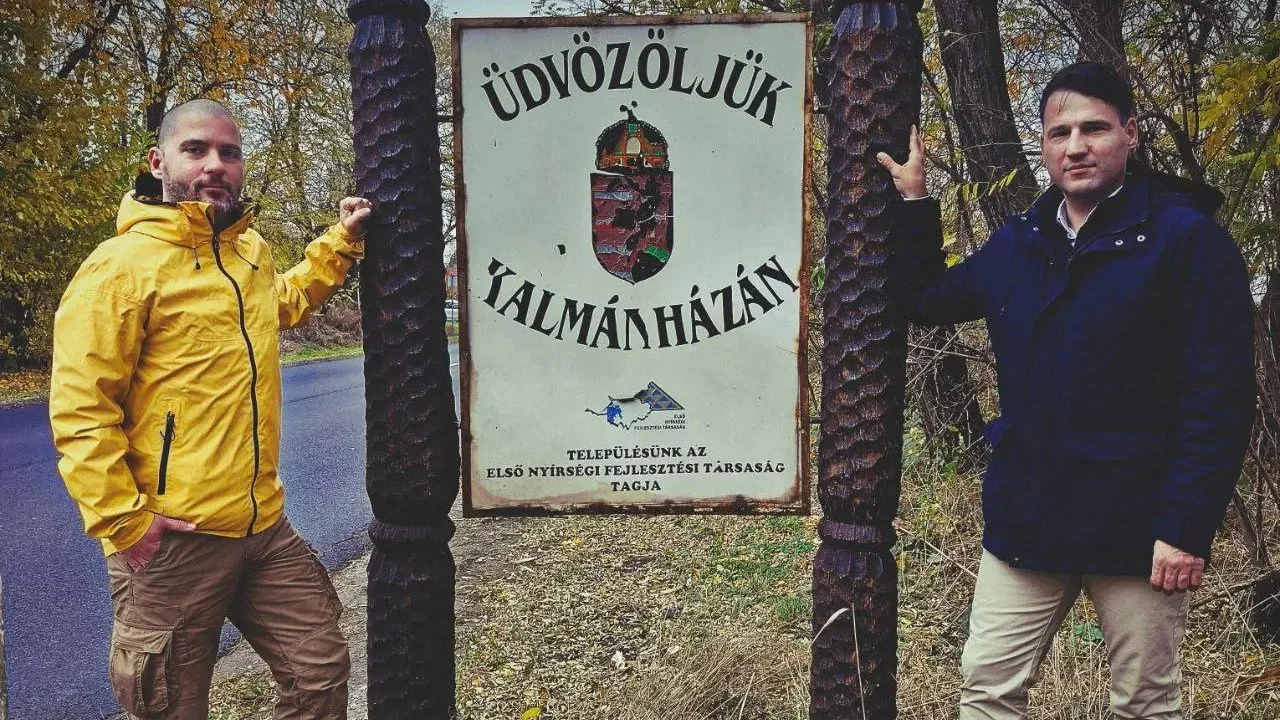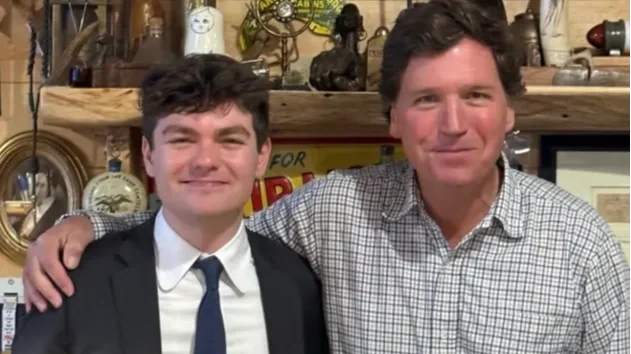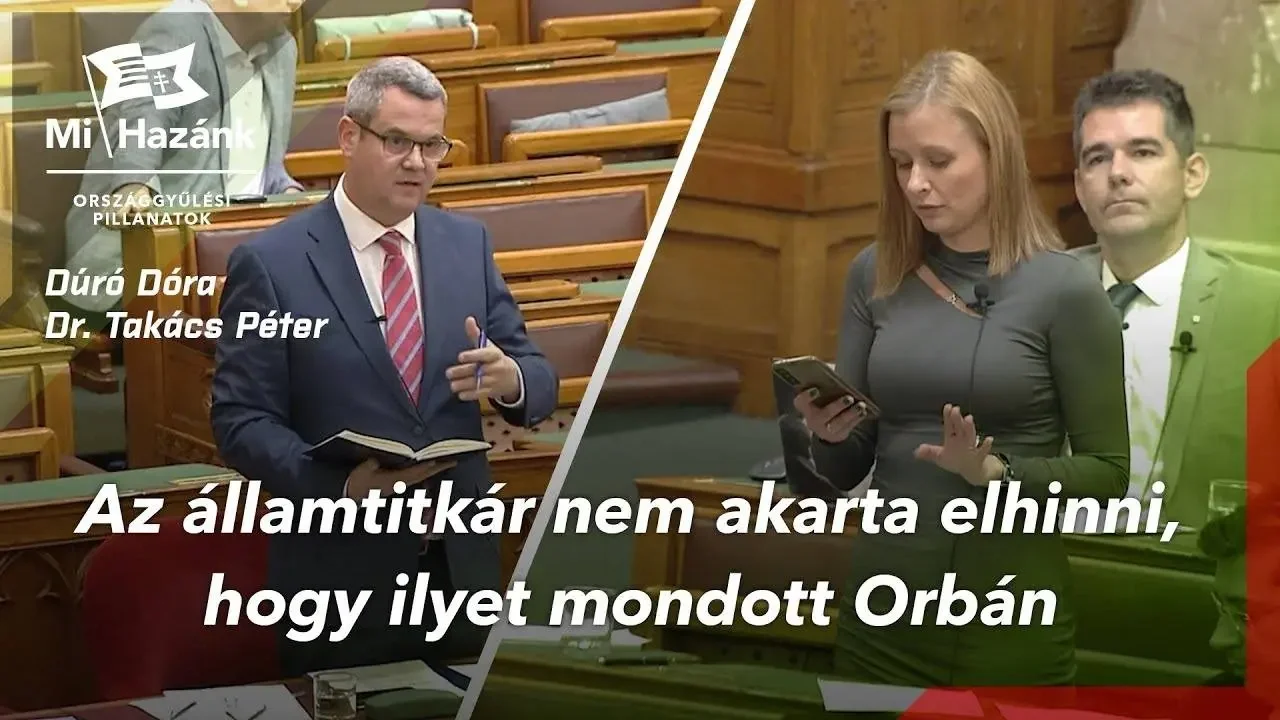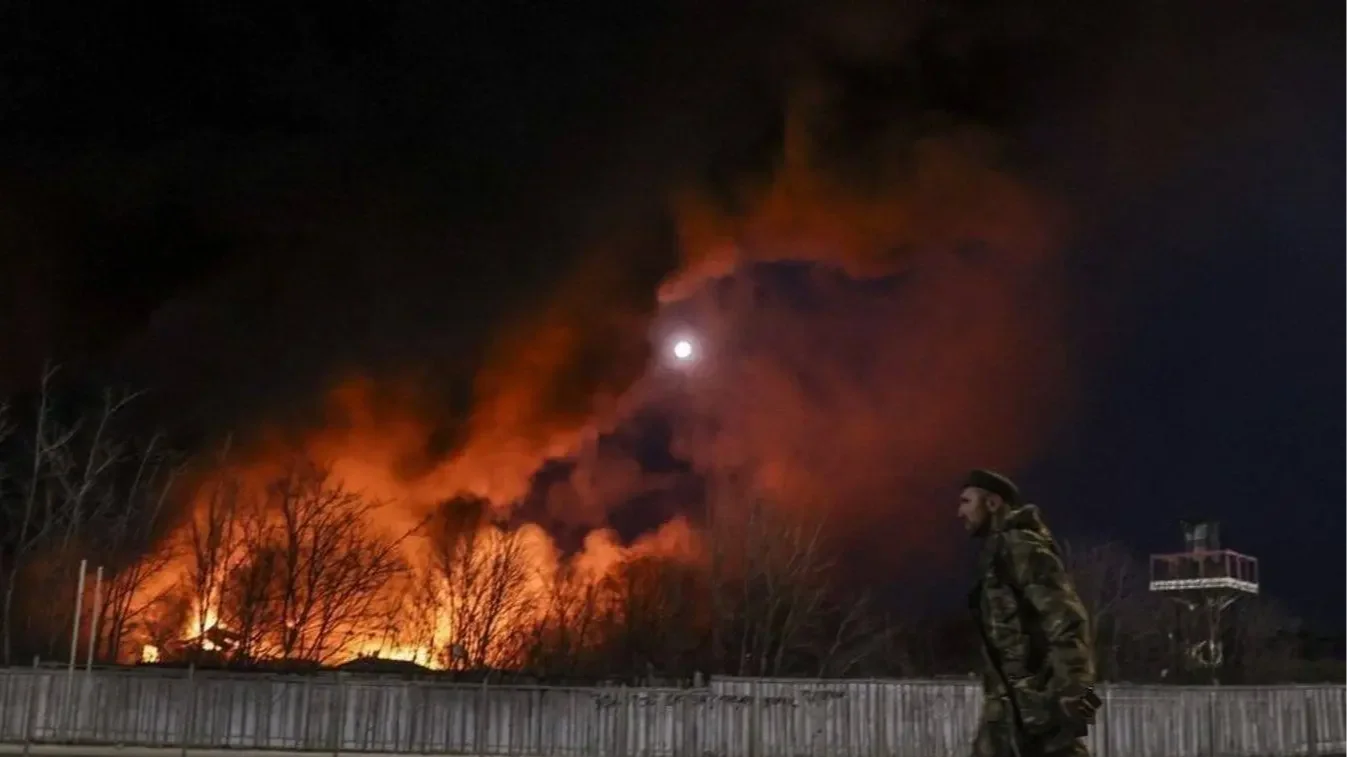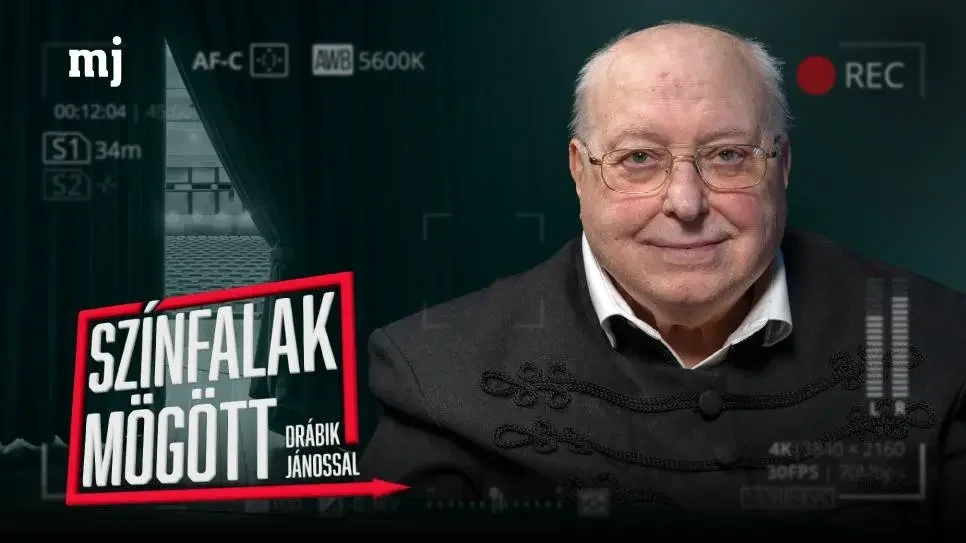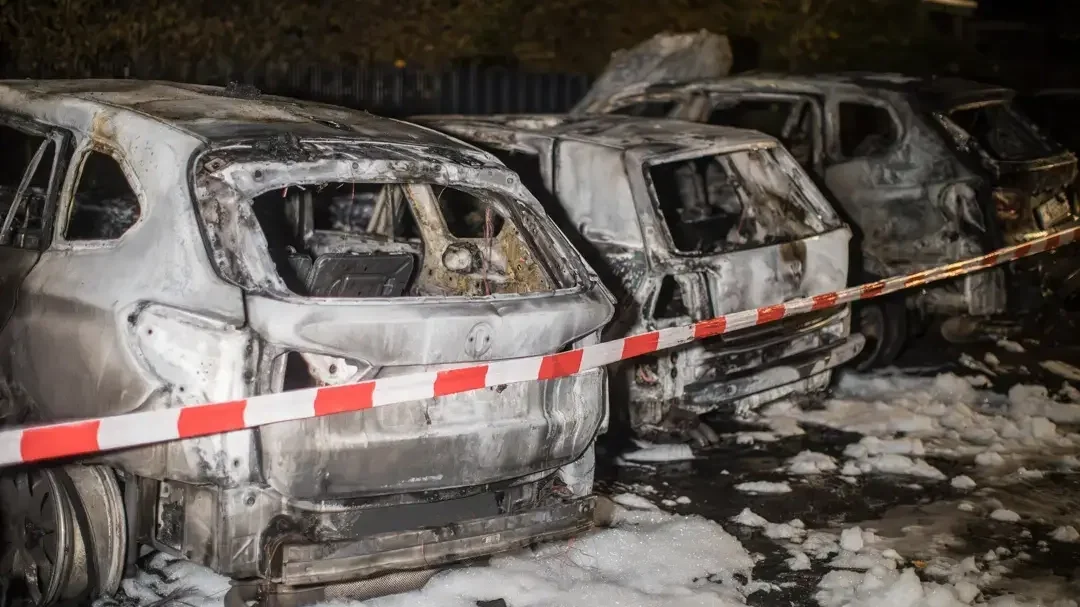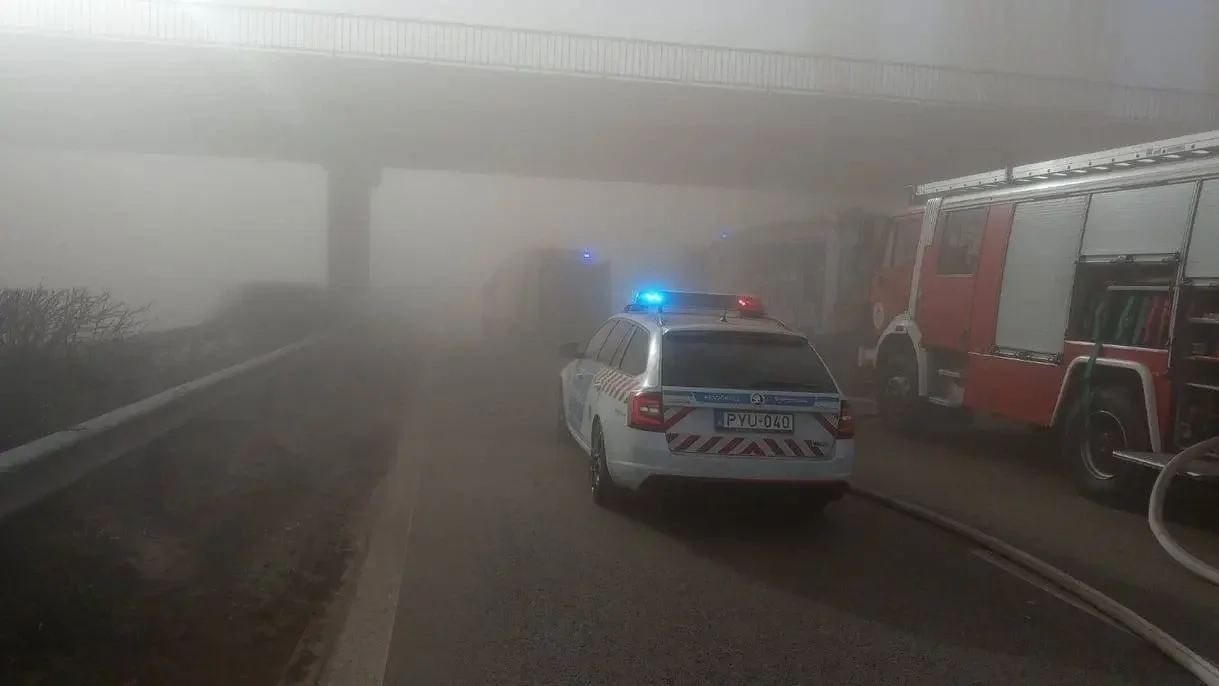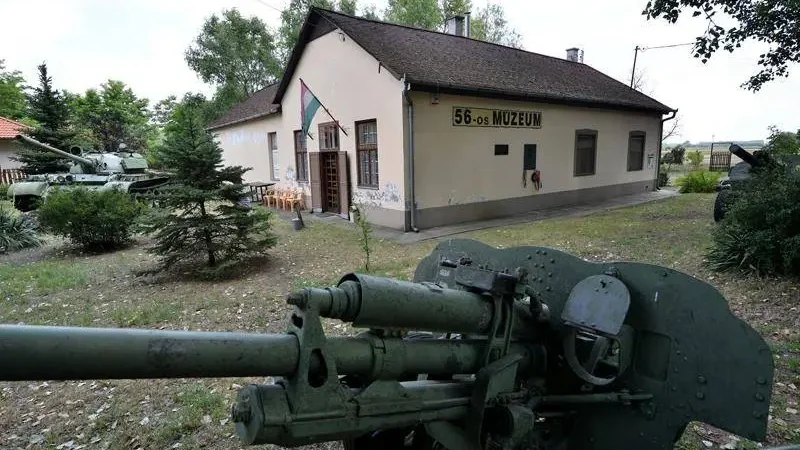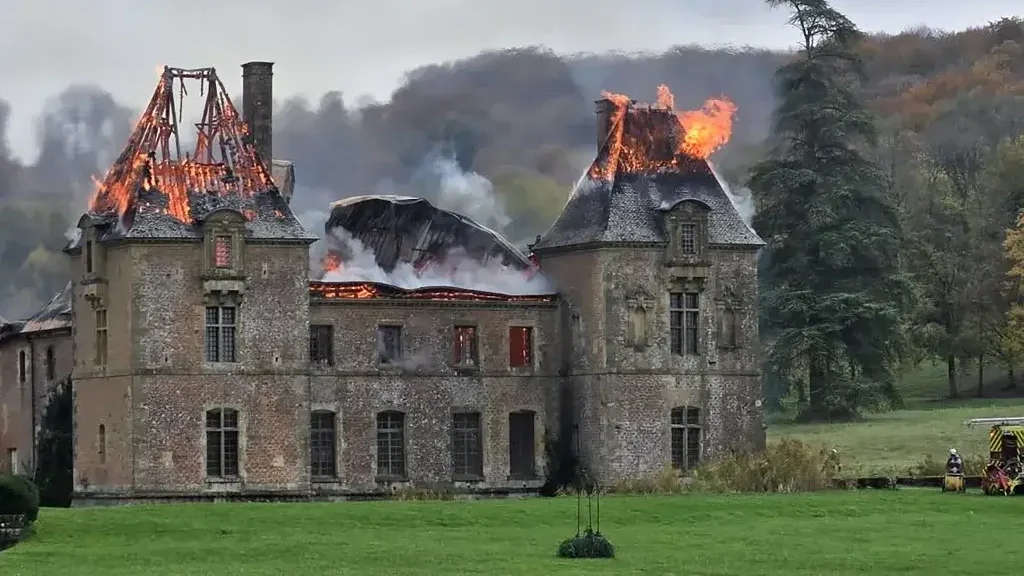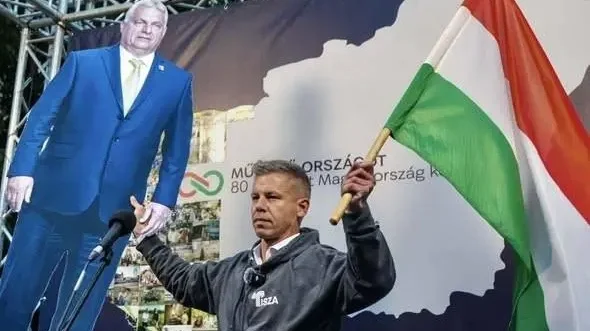"The Hungarian Nation Has Always Sought Justice"
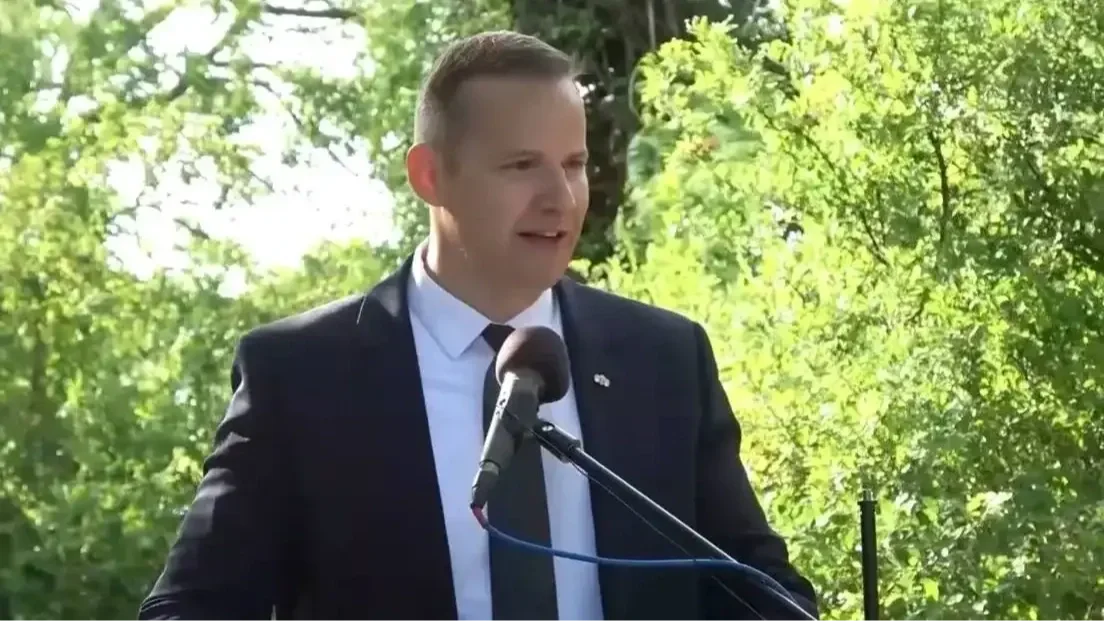 László Toroczkai's Speech at the Trianon Cross in Celldömölk, Hungary on June 4, 2025
László Toroczkai's Speech at the Trianon Cross in Celldömölk, Hungary on June 4, 2025
Dear Fellow Hungarians. Your Grace, Reverend Archbishop.
First, let me thank you for the honor of being here today, among such wonderful people, in this sacred place at the foot of Hungary’s largest Trianon memorial cross. I can hardly imagine a more fitting place or a more meaningful moment to remember Trianon, perhaps the most disgraceful peace dictates in both Hungarian and world history. So, I thank you, Your Grace, and I thank the organizers for making this day possible. I hope and trust that we’ll be able to gather here many more times in the years to come.
When I was born, I was born near the Trianon border. Even now, my home stands about a hundred meters from that same line. So, every day of my life, starting from childhood, I’ve had to face the injustice of Trianon. Thanks also to my grandfather, who was born in the southern regions that were torn away, I have grown up with this injustice. Every single day I have seen it with my own eyes.
That absurd, unnatural reality where I look across the field to my neighbor, who speaks the same Hungarian I do, whose cousin might live across the way in another farmhouse, and between us, someone once sat at a desk and drew an artificial, foreign border right through our land.
And yet, now, looking back after 47 years, I’ve come to believe that perhaps I shouldn’t just grieve or be bitter. I should give thanks to the Lord that I have the chance to see this injustice every day. I know it may sound surprising, but I’ve drawn great strength from it. And I still do. Because what was done to the Hungarian people was so immeasurably unjust that anyone with the slightest sense of justice, regardless of nationality, can’t help but be stirred by it. It awakens something powerful, something determined, something full of faith that urges one to act.
And what can we Hungarians say, whose entire history is about the search for justice? We have always looked for just rulers among our kings. Even today we try to find justice, and yes, humility too, among our leaders. Because if we look at our history, we see something telling. Other nations have kings called “the Lionhearted,” “the Great,” or “the Conqueror.” But in Hungary, the people’s favorite king, perhaps our greatest ruler, was given a different title by the people themselves: “Mátyás the Just.” Because the Hungarian soul has always sought justice.
Of course, we could choose to believe those we do not trust, those who preach that all people, all nations, are the same. But thank God, the world is diverse. Thank God, we are not all the same. Thank God, we are born with different gifts. Thank God, each nation has its own spirit, its own traditions, passed from father to son and mother to daughter. That is what makes the world beautiful.
And good cannot make peace with evil. It cannot join with it. As we heard earlier in Scripture, the good is often described as the flock, the lamb, while the evil is like a wolf. The wolf cannot unite with the flock. It devours it. So, we must not unite with evil. We must defeat it. We must not accept injustice or raise it up. We must overcome it and restore what is right.
For centuries, this has been a sacred calling for the Hungarian people: the fight for justice. Just as we once sought justice in our rulers, since Trianon we have been seeking justice as a nation. And right after the shameful peace dictate, what was the slogan Hungarians wrote everywhere, even in the sky, pulled by airplanes? “Justice for Hungary.” We proclaimed it to the world.
That deep injustice, felt every day by so many, gives us strength to fight. I especially feel it, since I can see that border every day from my window. It gives strength to fight. And as a child, that fight for justice against Trianon is where my journey began.
Today, that struggle has many forms. From foreign-currency mortgage victims to small business owners, abandoned farmers, producers, and beekeepers. The list of people across the Carpathian Basin who have suffered injustice is long. There is much to fight for. That is why I said, even if it sounds strange, that the disgrace of Trianon can be a source of strength for us Hungarians.
We see around the world that many nations now struggle for survival just as we do. And somehow, I believe we Hungarians are in a stronger position. Yet every day we hear people say, “Hungarians are finished,” “Hungarians are sheep.” This isn’t true. So first, don’t believe those who say such things. And second, never say such things ourselves. Let us be proud that we are Hungarian, and that we are strong.
We are a special nation. So special that all you need to do is look at a map. If you do, and look down there, you’ll understand what I mean.
As a child, I loved geography as much as history. I remember looking at the map, even as a boy, because our schools taught us nothing about Trianon. I don’t need to explain that. In school, we were told to go to “Subotica” and “Cluj-Napoca” instead of “Szabadka” and “Kolozsvár.” We heard “Bratislava” instead of “Pozsony.”
But I loved maps. I still do. And I saw then that there is no other unity like this in the world. Nothing shaped so perfectly by God or nature as the Carpathian homeland. A land surrounded and protected by natural arms.
Anyone with a homeland this unique shouldn’t just be proud of it. They should say it out loud: we are a special nation!
Let me say something else. I love languages. But there is no language like Hungarian. It is truly unique. Even today, people argue fiercely over who our linguistic relatives are, or which language is most similar to ours. But Hungarian is incomparable.
Yes, you can hear echoes of it elsewhere. I’ve been to Estonia, walking the streets of Tallinn, and more than once I thought I was hearing fellow Hungarians. I’d walk closer and realize I couldn’t understand a word. But something about the rhythm, the intonation, felt familiar. There are definitely shared influences, just as we see with Turkish languages as well.
These echoes exist because our nation emerged from a vast swirl of history. Out of that storm, we became a people, a homeland, and we were given the Holy Crown, which is itself something extraordinary.
Thanks to many of my compatriots, I’ve often had the honor of showing the Holy Crown to visiting foreign guests and politicians at the House of the Nation. And whenever I explain the story of the Crown—why it’s “Holy,” and what it means that the Crown mattered more than whoever wore it—it always leaves an impression. Franz Joseph is the perfect example of the Crown’s spiritual authority.
Hungarians have always focused on the Crown. And when I speak about this, foreign MPs listen, jaws open. They don’t understand. It didn’t work that way where they come from.
For those who even have crowns, that is. We are a remarkable nation, my dear Hungarian brothers and sisters. And yet, this is something people feel less and less free to say. Because we live in a world where those who caused Trianon have not disappeared. They’ve grown stronger.
When we look around the world today, we see that every nation is struggling to survive. We Hungarians are not alone in this. But let’s be clear: the force that caused Trianon is not some simple Serbian, Slovak, or Romanian logger out in the woods. He didn’t draw those borders. The force behind Trianon is far more powerful. And it is their enemy too.
This may be hard to explain, but it’s not hopeless. I’ve done it myself. Even here in the Carpathian Basin. I’ve explained it to Serbs, Romanians, and Slovaks.
As for the Rusyns, I won’t even begin. I met the president of the Rusyn World Council at a conference in Belgrade, organized by a Serbian MP. Today, we’re preparing to issue a joint statement standing up for Transcarpathia. For weeks now, people in Parliament have asked why it’s only the Mi Hazánk Movement talking about Transcarpathia. They ask, “What more do you want? There are hardly any Hungarians left there.”
But the reality is, those who received pieces of Hungary never cared how many Hungarians lived there. In places like Nagyvárad, where Hungarians made up 90 to 95 percent of the population, they still took it. That didn’t matter to them.
What are we Hungarians like? We seek justice. It’s not just about wanting something in Transcarpathia. They say, “Only ten percent of the population is Hungarian.” Now they’re driving out the last of them.
But here’s what I say. First, truth is more complex than numbers. This unity, created by God, belongs together. You can’t undo that with a pen or a border treaty.
Second, for those who are too worldly to understand this, I’ll say this much: together with the Rusyns, we are now the majority in Transcarpathia. If someone cares about numbers, there it is.
But if we stop fighting, if we give up, if we have leaders who accept the greatest injustice in modern history, then yes, the Hungarian nation will never achieve anything. And we will disappear, not slowly, but quickly, from the Carpathian Basin.
And truth starts with this: can we imagine a just Hungarian leader today who says nothing about Transcarpathia? About what’s happening there to Hungarians and Rusyns alike? The Hungarians are being wiped out. The Rusyns have already been wiped out. The current Ukrainian regime doesn’t even acknowledge their existence. They say there are no more Rusyns in Transcarpathia. But I met them. I meet their leaders. They exist. They’re simply not allowed to show up in official statistics. They can’t say they are Rusyns. They must say they are Ukrainians. This is the injustice taking place right now, and no one is talking about it.
That’s why, a few days ago, I wrote an open letter to Prime Minister Viktor Orbán and to Péter Magyar, the leader of the Tisza Party. And of course, both camps gave me heat. One side said, “Why are you turning to Orbán? He’s got only ten months left.” The other side, the Orbán supporters, asked, “Why are you turning to that traitorous globalist Péter Magyar?”
Well, I ask for patience. There’s a reason for everything.
I am waiting for their replies. And when they come, every Hungarian, every voter, can draw their own conclusions about who these men really are. The worst thing we can do is let them hide. Let them remain in their comfort zones.
Where they’re free to spout whatever propaganda suits them, whichever side they’re on. We must pull them out of that comfort zone. Force them to speak plainly, to stop dodging. Because we are living through a historic moment, facing a historic situation. And on top of it all, there is a terrible, bloody, tragic war unfolding right next to us.
Where hundreds of thousands, perhaps millions, are dying. We’ll only know the real numbers in the end. But even at the very start, I said: this would be a long and very bloody war.
There’s a very simple reason for this. My grandfather, God rest his soul, who fought at the Don River bend during the war, once told me: “My boy, the Russians never lose. If it takes the last man and the last bullet, they still won’t lose.”
And here, we’re seeing two Russian peoples fighting each other. Let’s be honest—we know the history of Kievan Rus. Neither side will back down easily.
At the same time, we also know that on a global scale, this war isn’t really just about Ukraine and Russia. Historically, they could have been one people, one nation. No, what’s clashing here are the very same forces that once brought about Trianon.
And if no one stands up to this, if we Hungarians and Rusyns fail to speak up for Transcarpathia, it’s as if we’re signing the Trianon peace dictate all over again. That’s why I called out Viktor Orbán and Péter Magyar. I ask forgiveness from anyone who’s offended, but ten months from now, there won’t be more parties in the Hungarian Parliament. It’ll be these three: Mi Hazánk, and those two others. You can write that down now. No matter what the pollsters say, no matter what they lie about on TV. Just wait and see. Remember my words. In ten months, these three political forces will be shaping Hungary’s future. In this historic moment, they must tell us where they stand.
I’ve already said it, and I’ll say it again: in 1991, a shameful betrayal was committed. Because in 1991, the same referendum that today’s war revolves around—declaring Ukraine’s independence and drawing its current borders—also declared the right of Transcarpathia to self-determination and affirmed territorial autonomy for Hungarians there, with Beregszász as the center.
Since then, the Ukrainian government has trampled all over that decision, illegally and illegitimately.
The world expects us Hungarians to accept the most unjust, most disgraceful peace dictate in world history. But no one expects Ukraine to honor its own referendum—the will of the people—which wasn’t drawn up in some backroom or at some table but decided by over 80% of the voters in Transcarpathia. You’ll find no more legitimate or beautiful expression of democratic will than a public vote. Yet no one is forcing the current Ukrainian government to acknowledge the outcome of their own referendum, the very one this war is supposedly about. Even Ukraine’s current borders were established by that same vote.
And just a few days after the referendum, on December 1, 1991, Hungary’s then leaders, who didn’t understand and still don’t understand how vital it is for Hungarians to stand up for justice, hurried to Kiev and signed a so-called basic treaty with Ukraine. In doing so, they gave up every right—even the rights declared just days before by referendum.
This deserves its own historical investigation. Gyula Popély, one of the most prominent defenders of the Hungarian community in the Felvidék (the Hungarian Highlands – Slovakia), has been fighting for their rights for decades. Even now, in his eighties, he’s still traveling across the Carpathian Basin proclaiming the truth. I met with him today, and he told me again: “Lacikám, I’ll keep going, I’ll keep speaking the truth—it’s no trouble for me, even at 80 or 90.”
He kept up this fight even under the hardest years of Czechoslovak dictatorship, trying to tell the world just how grave a betrayal took place in the ’90s—betrayal committed by Hungary’s own leaders at the time.
Today, he told me: if we ask him—and we did—he is ready to begin archival research to uncover the truth behind that treaty. Just this past week, the name of Géza Jeszenszky, then Foreign Minister, came up again—along with Prime Minister József Antall. What did they do, and why? Why did they sign that treaty? And why did it take so long to bring it before the Hungarian Parliament? Because let’s not forget: they didn’t dare to submit it for years. It wasn’t until a change of government that they finally did. And to this day, we still don’t know the hidden details.
Now Popély—as both a historian and one of the leading voices of the FelvidékHungarians—is trying to uncover what really happened. He’s working through the archives of Parliament, digging into what went on in the 1990s.
But today, again, we are in a historic moment. And someone must speak up. That’s why I’ve called on Orbán and Péter Magyar. Not just because I want to expose who they really are, not just to pull them out of their comfort zones. But I have no illusions. I don’t expect Orbán or Péter Magyar to deliver justice for Transcarpathia. I believe this can only happen with allies—real allies—around the world.
We need to see clearly who in the world actually supports the Hungarian cause. My approach is very simple. And in this, the Mi Hazánk Movement is truly unmatched.
I carry no political baggage. I have no foreign sponsors. Thank God, I’m not funded by anyone—east, west, north, or south. That means I can say this with a clear conscience: my friends will only be those who truly want what’s good for Hungarians—those who stand with us in our national cause.
That’s why I’ll reach out to the Americans, to the Ukrainians, to the Russians—to everyone. And we’ll see who responds. Who will say: yes, we care about the plight of the Hungarians.
Because if we look westward, toward Brussels, we see the same forces as before. There was Versailles, there was Trianon, there was Sèvres. Today, those very same globalist powers are sitting in Brussels. And they don’t want anything good for the Hungarian nation.
That’s where we’ve ended up since joining the European Union. And until recently, I used to say this only applied “on paper.” But now that’s no longer true.
In fact, I can now say that in non-EU-member Serbia, Hungarians enjoy the most rights of anywhere in the Carpathian Basin. Of course, not full rights—but more, at least on paper, than elsewhere. There is even a form of autonomy. In Novi Sad—where, sadly, Hungarians are now so few you’d need a magnifying glass to find them—public buildings still have Hungarian signs. Just a few weeks ago, I saw a Hungarian flag flying on a government building in downtown Novi Sad.
Now, sure, some may say: “That’s easy—the Hungarians there are gone.” But even in Magyarkanizsa, where there’s still an 80% Hungarian majority, I saw our national flag flying on the town hall. They can fly it there.
Meanwhile, in Romania—a member of the EU—where there are hundreds of thousands of Hungarians, in Transylvania, in Székely Land, where in several counties we are the majority, not only can we not fly the Hungarian national flag, but we also can’t even display the Székely regional symbols. Our fellow Hungarians—our own kin—are being harassed and punished just for that.
In the Felvidék, Uncle Gyula Popély can tell you himself: Hungarians don’t have even a sliver more rights today than they did under the old Czechoslovak regime. Not even a crumb. Collective rights? They couldn’t enforce any.
Sure, there’s freedom. You can march under LGBTQ flags, or whatever other symbols—even satanic ones. You can even cross the border. Unless you dare to question historical injustices. Because EU membership or Schengen borders aside, they were still able to ban me from Slovakia for five years. And that was while we were both in the European Union.
I didn’t even set foot across. The border was open. But the minute I entered, I wouldn’t have been allowed to speak or give a lecture. They would’ve detained us on the spot. It happened to me in Szatmárnémeti too, when I tried to go give a lecture ten years ago. They stopped me at the border.
This is the European Union. This is what it has brought us. So no, let’s not expect these globalists in Brussels to do anything about the injustice of Trianon. They won’t. We have no other option but to find allies elsewhere in the world. And as for this EU, we’ll have to beat them on their own turf.
The good news is: we do have allies—even inside the European Union. We’ve done something no other national, anti-establishment party in Hungary has ever done. We created our own political group in the European Parliament. A group we didn’t beg to join. We didn’t sneak in through the back door. We came up with the idea.
It was held in the Hungarian National Assembly’s delegation room, during our first international European conference. That’s where the plan was first voiced. And, thank God, it came together.
Thanks to the Hungarian people too—who elected Zsuzsanna Borvendég and the Mi Hazánk Movement into the European Parliament. So yes, there is hope. There is something worth fighting for. Because truth, somehow, always manages to win in the end.
Yes, our people often fall into despair. Depression, bitterness, hopelessness. And we have every reason to feel that way. But I know this because, thank God, I wasn’t raised in a bubble. I grew up among Hungarians, among my fellow countrymen. I didn’t just see the elite neighborhoods of Buda. I know the countryside. I know the Carpathian Basin. In fact, I can hardly think of a village in the entire region that I haven’t visited in the past 47 years, even though the successor states of Trianon tried to ban me and persecute me.
So yes, I understand the bitter mood of the Hungarian people. But I can still say—especially here, in this beautiful place, on this special day, among these wonderful people, standing at the foot of Hungary’s largest Trianon memorial cross—that there is such a thing as divine order. Or, for the atheists among us—and yes, even in Hungary, they tend to be Christian at heart, as was mentioned earlier—let’s just say natural order. Either way, it’s the same. From that, it becomes clear that eventually, order is always restored.
Humans may interfere. It might take weeks, months, years, even decades, maybe a full century. But one day, that natural order comes back into place.
People say ecosystems restore themselves. But the greater the sins committed by man, the more painful and merciless that restoration becomes.
We see this all over the Carpathian Basin—and across the world. When man turns his back on his duties, when he sins through negligence, then yes, we end up with disasters. Just like the water management problems we’ve been suffering with in this mutilated country for years. No other political force in Hungary, apart from Mi Hazánk, is even talking about this. Only we are.
This negligence—this sin—on the part of our leadership is also what led to the tragedy unfolding right now at one of our greatest national treasures: the Parajd salt mine. It wasn’t God’s doing. It wasn’t even Trianon. This was caused by people.
The Romanian state. The mine operators. And I’m sure the Székely people in Parajd will find out who the real culprits are. I have no doubt about that. The Székelys will find them. They always do.
Our responsibility was to be the first to act. I was one of the first to call the mayor of Parajd and ask how we could help. He told me that for now, there’s not much we can do. But our words, our moral support, mean a great deal to them.
And I’ll pass on what the people of Parajd told us. A Mi Hazánk team was there the very next day. We didn’t see anyone from the other Hungarian parties there. I’ll just note that quietly, even though for the past month, Hungarian politics has been all about “Hungarians abroad.” But let’s leave that for now. I don’t want to talk about party politics today.
But the people of Parajd told us something important. And I must pass on that message here too. Right now, the way we can help—besides offering kind words—is to go there. Support their small businesses, their restaurants, their little shops, their guesthouses. That’s how we can help keep them alive.
So, we’re thinking about how we can encourage that. If someone planned a vacation heading west, maybe now they should consider heading east instead.
That’s my suggestion. That’s how we can help. Within our modest means. We’re not in charge of Hungary. Not yet. But we’re glad that the Hungarian government has spoken out. And when it comes to moments like this, it is not just a national duty. It is a human duty to help.
And finally, about injustice, I’ll say one more thing. This injustice that has given us a Hungary that looks artificial, that has carved up and crippled our homeland—this same force has now reached the point where it’s no longer content with destroying nations.
As I said before, every nation must understand this now. We must stand together. Even, dare I say, with Serbs, Slovaks, Romanians—even the French. Yes, even them. If it’s in the name of truth.
Because right now, it’s no longer just about dismantling nations. We’ve reached the point where the very idea of humanity is under attack. And maybe there’s no better day or place to say it out loud: they’ve moved on from attacking the family—that’s been going on for a long time and has already caused serious harm to us all. But now they’re attacking the human being itself. The soul.
I could give many examples, but there’s no time for that now. So let me just say the worst part. Because no one else is talking about this. Only we are.
Maybe the politicians don’t care. But this isn’t about politics. This is about people. About our people. Our families. Our children.
Because right now, transhumanism is not some science-fiction threat centuries away. Artificial intelligence is already here—on our phones, in our homes. This is not some distant problem. It is happening now.
And I cannot imagine a more horrific act of terror against humanity. Against the human being. Against the family. Against the nation. Because this is nothing less than the destruction of the soul.
Total annihilation of the soul. Because only the body matters now. Even a machine can have that. Even artificial intelligence, because what’s left is just the body.
And in this new world, the only ones allowed to have souls are those who control it all. And those souls, let’s be honest, must be very dark indeed.
And so, we must go beyond the Carpathian Basin. Look outward. Because this is no longer just about our civilization or even about Europe. We in Mi Hazánk call it “northern civilization”—a Eurasian civilization. But I’m not just talking about that. I’m talking about all of humanity.
Everyone must come together now. Africans, Asians, Americans. Everyone must unite and stand up. We are already doing this in Brussels. We’re speaking out everywhere. Trying to call attention to it. Because almost no one else is willing to fight for the soul—for humanity itself.
And if we can help save humanity, then who else should take up this mission, if not the Hungarian people, who have always stood for justice? This, too, is our mission.
If we can save humanity, then we can tell the world about the injustice of Trianon. And they’ll understand us.
Then we can hope that, first in Transcarpathia, and then throughout the Carpathian Basin, with enough allies, we will one day reunite what God and nature made whole.
So let us hold on to our old slogan. We have no reason and no right to change it. Yesterday in Gyöngyös, I heard it again from an outlaw from the Mátra mountains. He said, “We can’t give up, because we don’t even know how.”
I feel the same way about truth.
We Hungarians cannot think any other way. Because we are Hungarians. We fight against injustice. For justice.
Justice for Hungary!
Thank you for allowing me to be here.
The original Hungarian-language speech is available here:
Mi a munkánkkal háláljuk meg a megtisztelő figyelmüket és támogatásukat. A Magyarjelen.hu (Magyar Jelen) sem a kormánytól, sem a balliberális, nyíltan globalista ellenzéktől nem függ, ezért mindkét oldalról őszintén tud írni, hírt közölni, oknyomozni, igazságot feltárni.
Támogatás
